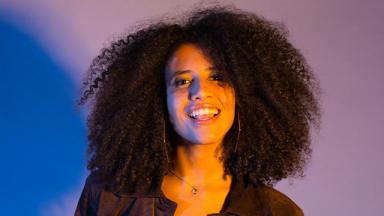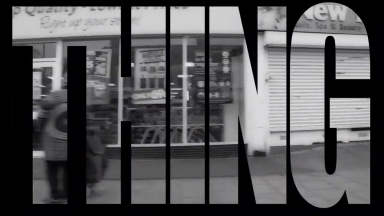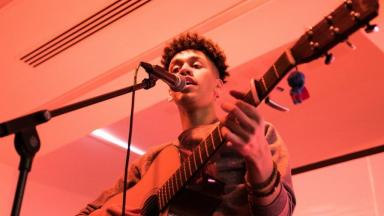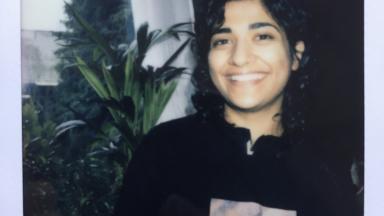Written by Youth Music NextGen Contributing Writer Lisa Meech. Published 16 November 2021.
Putting the word grime, next to the word opera, you are going to upset people and there is an element of 'we need to have this conversation'
- Max Wheeler
In 2018, I facilitated a music project run by the Halle, a Manchester-based orchestra, at a high school with young people who had no previous exposure to classical music. The project involved taking them to watch a Halle concert. When I looked around I felt hyper-aware of how we were the only group that included people of colour. The musicians on stage? Almost entirely white. The audience? A sea of elderly, white faces.
This isn’t unnoticed by young people. My students looked bored and uninterested. How were my students supposed to see themselves as part of this culture? Evidence for a lack of diversity in classical music is endless. Donne found that in 2020-21 the Halle had only one piece by a Black or Asian woman and none by a Black or Asian man. Nwanoku, founder of Chineke! Orchestra, the first majority BME orchestra in Europe, shares in the Guardian that the 2019 BBC Proms included less than 20 minutes of music by BME composers. Impulse Music’s report 2015 on Equality and Diversity in classical music found that only 2% of teachers at conservatoires are from a BME background and from the 629 orchestral players they collected data from, only 11 were from BME. Thraves shares that “just 11% of board members in the classical industry are ethnically diverse” with London Symphony Orchestra, a top UK orchestra, having no board members of colour at all.
If classical music continues to present itself as irrelevant and uninviting to the majority of young people, then who are they expecting to see in the audience and orchestra in 30 years? If you believe that the arts thrive when they’re reflective of society, then limiting representation is a poor model.
More needs to be done to make classical music accessible to young people from working class and minority backgrounds. The financial costs of instruments, lessons and practice-time is just one factor alone - culturally classical music seems to be screaming ‘keep out’. It’s time for the industry to change, and it can't be tokenistic. Classical music needs to be genuinely inclusive by changing to suit the needs of diverse communities. You can’t expect young people to magically become excited by classical music by giving them a violin if the industry still doesn’t reflect them.
Thankfully, there are people leading the charge. Pedestrian is an arts and education organisation working with children and young people experiencing disadvantages, who receives funding from Youth Music. In partnership with Leicestershire Music Hub, and Max Wheeler, they created a Grime Opera for young people - a concept originally commissioned by Essex Music Hub. I spoke with Hema (director of Pedestrian Leicester,) Tian (facilitator with Pedestrian and rapper) and Max Wheeler (composer) about the opera, and how it's making classical music more inclusive.
“[The inspiration for the project was] this idea that classical music is always put up on a pedestal, as the pinnacle of western civilisation, this is the elite music that you should be in awe of and anything like grime, garage, hip-hop is seen as this lower form of music”, says Max. He continues saying the Grime Opera project “is a statement that these are two forms of art [Grime and Opera] that should be considered in the same way”.
Hema knows that, for Pedestrian’s participants, classical music is a world that they look at and think “it’s not for me”. She explains that they work with “young people who come from inner-city deprived areas, they’re not young people who are going to orchestra’s, they’re young people who are making music on their phones”. This project is designed to “break down barriers”, so that if Pedestrian’s participants want to be a part of classical music they can be. However, it also changes classical music to make it relevant to the lives and interests of Pedestrian’s participants. She believes that neither Grime nor classical are better than the other; however, she is sure that “classical music has to be more accessible”.
These thought processes are encapsulated in the name “Grime Opera”. Max grins as he tells me that the name is “provocative, putting the word grime, next to the word opera, you are going to upset people and there is an element of 'we need to have this conversation’”. The title alone makes us question who we expect to collaborate and engage with classical music.
Both grime and classical artists gained from this project. Max shared orchestral students improved their rhythm skills and enjoyed playing music they listen to. Meanwhile grime artists get to rap alongside an orchestra. Tian shared how “great the image is when you’re on stage with the whole orchestra behind you, it just looks like something people should be interested in.” When I asked if he’d enjoyed the musical challenge of fusing the two genres he enthusiastically stated that: “I can’t wait to write one [Grime Opera] where I write the whole story. It’ll be harder and more difficult”. He’s clearly driven by the challenge of this genre crossover to create new and innovative art-forms.
“Orchestras are…one of the most incredible sounds you will ever hear and I think all the grime kids I work with deserve to hear that sound", says Max. The Grime Opera forces the orchestra out of concert halls and into new, exciting spaces that can be accessed by all musicians. At the same time, orchestras gain talented musicians from endless genres that will help to grow the audience. And hopefully, 30 years from now, the audience, and the musicians, will look a lot different to today.
Youth Music's investment in grassroots organisations like Pedestrian is made possible thanks to the National Lottery via Arts Council England, players of People's Postcode Lottery and support from partners, fundraisers and donors.
You may also like...
5 ways to make your music project more appealing to young people
Carli, a freelance assessor on Youth Music's Incubator Fund, shares her personal experiences breaking into the music industry, and her tips for making a music project appealing to young people.
Music-making projects supporting young people's mental health
Today on Youth Mental Health Day, find out about some of the music-making projects we invest in nationwide that have a positive impact on young people's mental health.
Youth Music Self-Expression Report
Read our new report exploring the links between songwriting, self-expression and wellbeing in young people.




